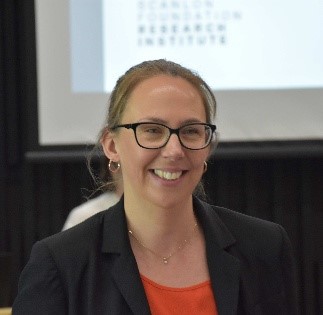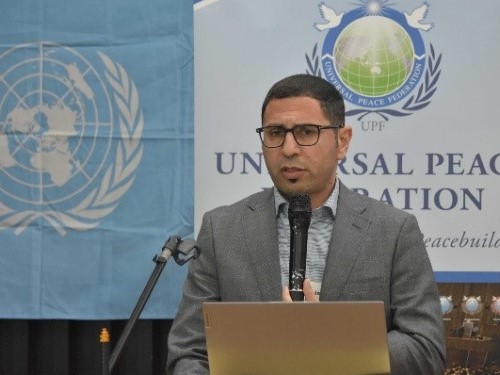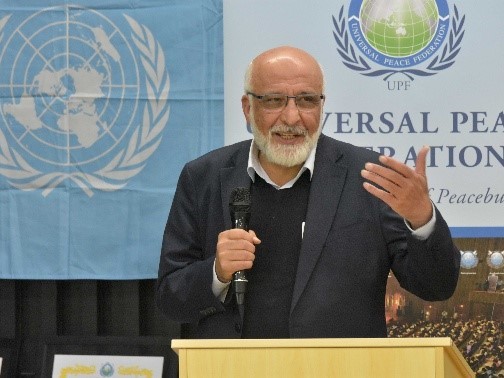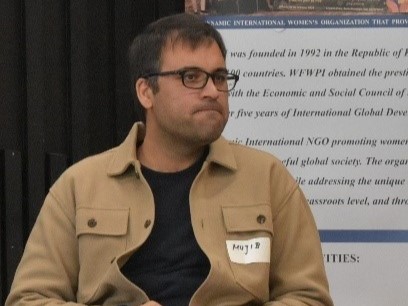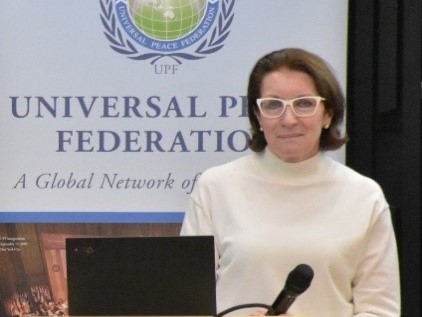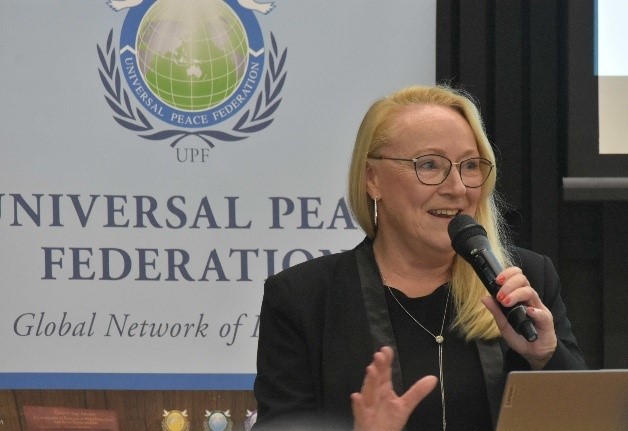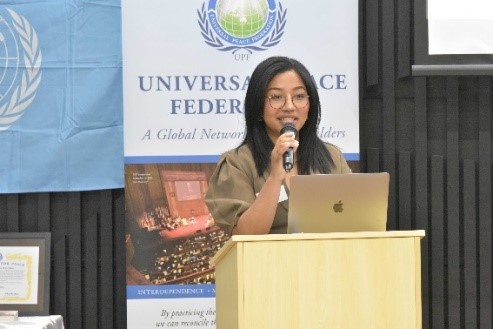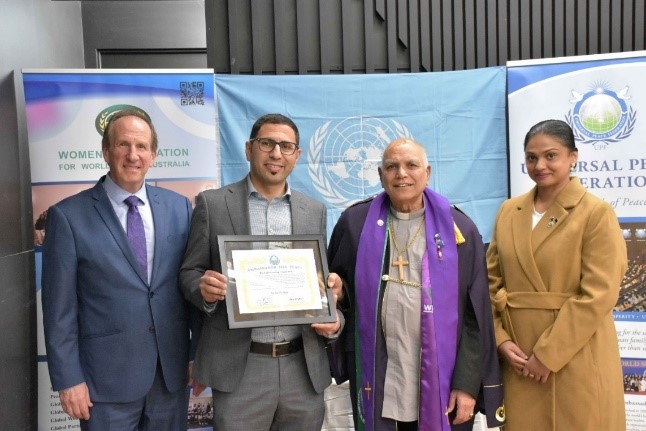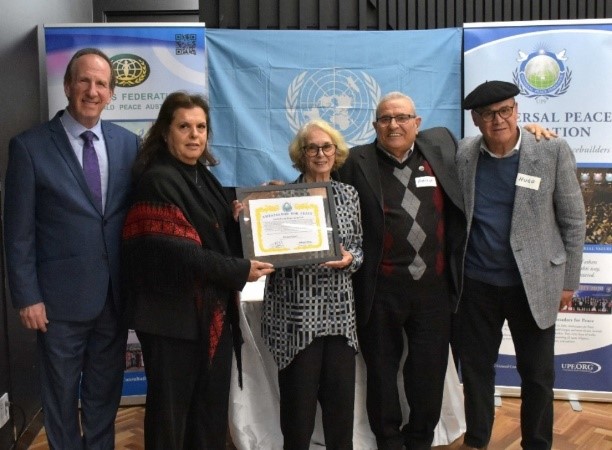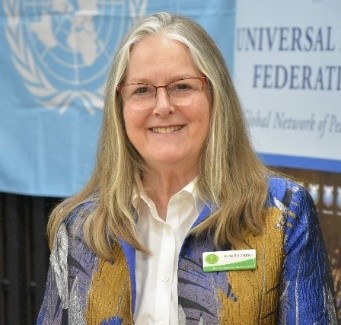Melbourne Conference Explores Pathways to Peace
- Sep 20, 2025
- 4 min read
Melbourne, Australia – Presentations on the principles and challenges of peacebuilding, followed by practical applications, engaged more than 60 participants at a conference to mark the UN International Day of Peace in Melbourne on September 20, 2025, under the theme, "Act Now for a Peaceful World."
The event was organized by UPF-Australia, the Women's Federation for World Peace (WFWP) and the Family Federation for World Peace and Unification. The day's events were hosted by MC Ms. Jess Ness, a community builder and advocate with over 15 years of experience.
The program began with a presentation by Dr. Ala Mustafa, a pediatric cardiologist and co-founder of the Palestinian Australian New Zealand Medical Association. He spoke on the "Long and Treacherous Road to Peace" in Palestine. He explained the troubled history of the region, adding, “Wars leave a lasting scar – some are skin deep, others permeate the mind, and new generations continue to carry the weight of this trauma in a cycle that will remain unbroken unless we act now.” He concluded that seeds of peace can be sown through the efforts of valiant doctors and humanitarian organizations.
Following this, two presenters addressed the topic: "What Makes Peace Possible and Sustainable?" using the case of Afghanistan in the context of South-Central Asia.
Mr. Mohammad Masoom Stanekzai, an honorary fellow at the Asia Institute and former chief peace negotiator of the Islamic Republic of Afghanistan, argued that peacebuilding is harder today, with great-power rivalries intensifying. He argued that Afghanistan has been a mirror of global tensions, influenced by outside interference resulting in seven regime changes in five decades, with millions displaced.
Today, Afghanistan is one of the darkest places on earth for women to live, and the most dangerous place for freedom of speech. He said peace has been elusive because military solutions have been prioritized over addressing the root causes of conflict or implementing preventive measures. He explained that decades of war and extremist ideologies have normalized violence; reversing this requires investing in a culture of peace through families, schools, elders, poets, and religious leaders.
Dr. Mujib Abid, a postdoctoral research fellow at the University of Melbourne's Initiative for Peacebuilding said, “Growing up in Afghanistan under Western occupation made me a product of the Western narrative.” The problem was that this narrative did not reflect what was actually happening in communities outside Kabul.
Dr. Abid found hope in a group of activists with a non-violent approach to peacebuilding. He concluded by saying that peace must begin with the individual and sustainable peace is built on a community level.
Next, Ms. Anthea Hancocks, CEO of the Scanlon Foundation Research Institute, presented the results of her institute’s 2024 Mapping Social Cohesion Report, based on a survey of 8,000 people in Australia. The report showed a high level of social cohesion, and a large proportion of Australians who embrace multiculturalism. However, financial insecurity is a major cause of stress for Australians, and decreases social cohesion. The data showed that older people had a strong sense of community belonging but were fearful of change; this was the opposite for young people. Ms. Hancocks concluded that building peace and social cohesion starts in each neighborhood.
In the second half of the conference Dr. John Bellavance, vice president of UPF-Australia, presented the Principles of Peacebuilding. He outlined six key principles: finding commonality based on universally shared values; fostering individual peace through values education; setting the pattern of harmony in the family; rejecting the dehumanization of others; adopting a mindset of humility, an openness to truth, and a willingness to listen to others; employing international law, grassroots collaboration, and political negotiation. Negotiation, dialogue, compromise and the pollical process are the alternative to endless conflict, he said.
Dr. Birgit Trauer, founding director of The Cultural Angle and a charter member of the International Institute of Peace through Tourism, spoke on "Peace Through a Relational Lens." She emphasized that peace begins at home, shaping the attitudes and behavior reflected in personal, family, and community relationships. However, Dr. Trauer pointed out that values and attitudes are not always connected. She named three sources of conflict: variations in economics and access to resources; differing world views and values; and degrees of power and control. She concluded by presenting the three core competencies for peacebuilding outlined in her book: relationship wisdom, emotional empowerment and conscious communication.
Ms. Arfa Sarfaraz Khan, president of the United Muslim Sisters of Latrobe Valley, then addressed the issue of violence against women, in conflict zones and elsewhere, stating that women bear a disproportionate burden in conflicts but are also powerful agents of change. She shared that women are resilient despite harassment and sexism. She said that peacebuilding requires listening sincerely to other’s viewpoints.
Ms. Raviana Sailo, chair of Psylaw Incorporated, spoke about the necessity of meeting fundamental needs – like nutrition and education – in order to build peace and societal stability in hardship-stricken regions. She noted that a wholesome meal is a foundation for hope, learning, and wellbeing. Her organization started Meals for Minds, a program that provides fortnightly nutritious meals for around 70 students living in one of Myanmar’s most disadvantaged communities.
UPF’s Ambassador for Peace Award was presented to Dr. Ala Mustafa for his extensive humanitarian work, and to Ms. Rafaela López for her four decades of work in migrant and refugee settlement, disability support, and domestic violence services.
The conference concluded with remarks by Ms. Anne Bellavance, president of WFWP Australia, who thanked everyone for their contributions.
By Dr. John Bellavance, Vice President, UPF-Australia September 20, 2025




